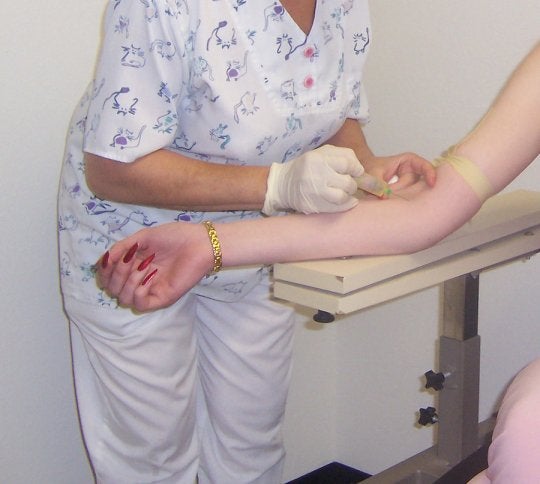-
Informing Yourself About Second Trimester Abortions
Second-trimester abortions occur between weeks 12 and 26 of pregnancy. This type of abortion may require multiple office visits, depending on the stage of pregnancy. Your gynecologist will explain what to expect at each step of the procedure.

For the first step of a second-trimester abortion, a gynecologist inserts laminaria sticks into the cervix, which cause the cervix to dilate over the course of several hours. Usually, patients receive their laminaria sticks and return home overnight to allow dilation to occur. The following morning, a gynecologist will perform a dilatation and extraction, or D&E procedure, using ultrasound guidance. General, twilight, and local anesthesia are all available to help patients stay as comfortable as possible. After the procedure, irregular bleeding may occur for a few weeks, along with cramping. Hormonal changes after the abortion may make you feel emotional.
Washington Surgi-Clinic is committed to providing access to safe, compassionate abortion services in Washington, D.C. For more information about your abortion options and other women’s health services, call (202) 659-9403.
-
The STD Testing Process
In most cases, early STD treatment helps to prevent long-term complications, so it is important to talk to your gynecologist about STD testing. Your gynecologist will ask you questions about your sexual health history and current relationships to determine what type of STD testing is right for you.
Watch this video to learn more about STD testing. Most tests can be completed simply by taking a small sample of cells, examining any vaginal discharge that is present, or performing a blood or urine test.
For STD testing in Washington, D.C., visit Washington Surgi-Clinic . We offer fast, confidential women’s health services, including STD testing and treatment. To make an appointment, please call (202) 659-9403.
-
Discussing Birth Control with Your Partner
In all sexual relationships, it is important to discuss birth control options with your partner. When you’re considering birth control, your gynecologist can help you understanding which choices could be a good match for you. With this medical advice in hand, use these tips to have this important conversation with your partner.

Talk About STD Protection
If you are not in a monogamous relationship, or if you are but you and your partner haven’t undergone STD testing since becoming monogamous, STD protection should be part of your discussion about birth control. Your gynecologist may recommend a barrier method of birth control, such as condoms, which help to prevent STD infections as well as unwanted pregnancies. If you are in a monogamous relationship with a partner who has been tested and is free of STDs, you could consider options that only prevent pregnancy. You can also combine options, such as using birth control pills to prevent pregnancy and condoms for STD protection.
Consider Short and Long-Term Needs
Could you and your partner consider starting a family in the near-future, or do you know that you want to avoid pregnancy for an extended period of time? If you know that starting a family is off the table, then your gynecologist can offer birth control options that provide protection for several years at a time. If you want more flexibility, birth control pills, patches, or shots could be more appropriate.
Be Honest About Preferences
You and your partner should openly discuss your birth control preferences, as you’ll be less likely to use a method that you’re not comfortable with. If you prefer not to use a barrier method, discuss how you will protect yourselves from STDs. If you would rather not use a hormonal method, be upfront about your need for a different solution.
Make an appointment with a gynecologist in Washington, D.C. at Washington Surgi-Clinic to learn about all of your birth control options. Call us today at (202) 659-9403 to schedule a visit.
-
When to Get Tested for HIV?
According to the Centers for Disease Control and Prevention , one in seven people with HIV don’t know that they are infected. For this reason, they recommend that everyone between the age of 13 and 64 has at least one HIV test, but people in higher risk groups may need to be tested more often. Your gynecologist can help you make smart decisions about HIV testing that are right for you. Keep these general guidelines in mind as you consider getting tested for HIV.

After Unprotected Sex
Having unprotected sex outside of a monogamous relationship with a non-infected partner leaves you vulnerable to HIV. Because HIV does not show up in the blood stream right away, you can’t get tested immediately after your potential exposure. In most cases, HIV will show up in a test three months after the last potential exposure event, though your gynecologist may recommend repeating the test at the six-month mark for maximum accuracy. Keep in mind that unprotected sex means any instance of vaginal, anal, or oral sex without protection.
After Sharing Needles
Sharing needles with an injected person, such as syringes used for drugs, also increases your risk. Like HIV testing after unprotected sex, you will need to be tested three months after your last potential exposure, and in some cases, again six months after exposure. Keep in mind that if you continue to share needles, you will need to have more regular HIV testing.
After Exchanging Sex for Drugs or Money
Exchanging sex puts you at risk of exposure to HIV from people with high-risk lifestyles. The same testing window applies. Talk to your gynecologist after this kind of sexual activity, as he or she may recommend additional STD testing.
At Washington Surgi-Clinic, we offer confidential HIV testing in Washington, D.C. , alongside a range of gynecology services and STD treatment options. To learn more about HIV testing and our other services, please call (202) 659-9403.
Recent Posts
Popular Posts
categories
- Uncategorized
- STD
- Washington Surgi-Clinic
- Abortion
- Pregnancy
- Pap Smears
- Birth Control Options
- HPV
- Gynecologist
- Pregnancy Test
- Abortion Safety
- IUD
- Pregnancy Termination
- First Trimister
- Cervical Cancer
- Morning After Pill
- Birth Control Pills
- Chlamydia
- Birth Control Shot
- Gonorrhea
- STD Testing
- Birth Control Implant
- Pelvic Pain
- Birth Control Patch
- HIV
- HPV Vaccine
